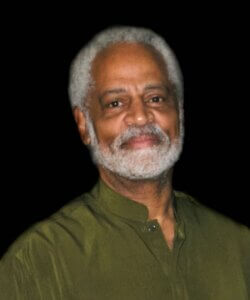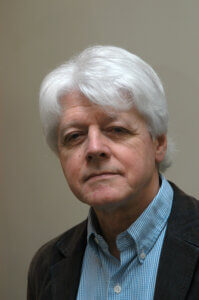Bernal Prize 2022: Troy Duster and Arie Rip
The Society for Social Studies of Science annually awards the Bernal Prize to an individual who has made distinguished contributions to the field of STS. Past winners have included founders of the field, along with outstanding scholars who have devoted their careers to the understanding of the social dimensions of science and technology. The 2022 Prizes go to Troy Duster and Arie Rip.
Troy Duster
 Troy Duster is an agenda-setting American sociologist. He is Chancellor‘s Professor Emeritus of Sociology at the University of California, Berkeley, where he has taught since 1970. He is former Director of the Institute for the History of the Production of Knowledge at New York University and former Chair of the New York Consortium on Science and Society. Duster‘s pathbreaking research on the sociology of law, science, deviance, inequality, race, and education, has provided a measure of socially and politically engaged science and technology studies for over five decades. From revealing the social forces at play in the history genetics, to calling out the racial bias embedded in contemporary algorithms, Troy Duster has tackled the hard and pressing issue of bringing social justice into the production of scientific knowledge. He has also played an important role in training additional generations of scholars who have become leading voices in the field, including Joan Fujimura, Alondra Nelson, Duana Fullwiley, Ruha Benjamin, Catherine Bliss and Aaron Panofsky. Race and science is a domain of inquiry that is increasingly recognized as vital to STS, and Duster‘s body of work developed over many decades remains a touchstone. We are delighted to honor him with the John Desmond Bernal Prize for his many significant and outstanding contributions to the field of Science, Technology, and Society.
Troy Duster is an agenda-setting American sociologist. He is Chancellor‘s Professor Emeritus of Sociology at the University of California, Berkeley, where he has taught since 1970. He is former Director of the Institute for the History of the Production of Knowledge at New York University and former Chair of the New York Consortium on Science and Society. Duster‘s pathbreaking research on the sociology of law, science, deviance, inequality, race, and education, has provided a measure of socially and politically engaged science and technology studies for over five decades. From revealing the social forces at play in the history genetics, to calling out the racial bias embedded in contemporary algorithms, Troy Duster has tackled the hard and pressing issue of bringing social justice into the production of scientific knowledge. He has also played an important role in training additional generations of scholars who have become leading voices in the field, including Joan Fujimura, Alondra Nelson, Duana Fullwiley, Ruha Benjamin, Catherine Bliss and Aaron Panofsky. Race and science is a domain of inquiry that is increasingly recognized as vital to STS, and Duster‘s body of work developed over many decades remains a touchstone. We are delighted to honor him with the John Desmond Bernal Prize for his many significant and outstanding contributions to the field of Science, Technology, and Society.
Arie Rip
 Arie Rip is Professor emeritus of Philosophy of Science and Technology at the University of Twente, and Professor at the University of Stellenbosch in South Africa. His commitment to the field of Science and Technology Studies dates to the 1970s, when he led the building of institutional and pedagogical infrastructures that have since contributed to the training of students and scholars across generations, disciplines, departments, and nations. Arie Rip has not only furthered understanding of the changing conditions of innovation and scientific policy in the central countries; he has also built important bridges for understanding the dynamics of science and technology in the periphery. His proficiency in science and technology writ large has allowed him to tackle nanotechnology, GM foods, and technological futures with responsibility but without fear. Among his many theoretical and practical contributions to STS are the Approach of Constructive Technology Assessment, and a model for Responsible Research and Innovation. This is not the first time that 4S honors Arie Rip for his work and trajectory. He received the Mentoring Award in 2016 for his many mentoring practices that, through ethical leadership and durable commitment, contributed to establish and consolidate STS. We are pleased to add the John Desmond Bernal Prize to the honors that Arie Rip has received from a community of which he has been a key, beloved figure.
Arie Rip is Professor emeritus of Philosophy of Science and Technology at the University of Twente, and Professor at the University of Stellenbosch in South Africa. His commitment to the field of Science and Technology Studies dates to the 1970s, when he led the building of institutional and pedagogical infrastructures that have since contributed to the training of students and scholars across generations, disciplines, departments, and nations. Arie Rip has not only furthered understanding of the changing conditions of innovation and scientific policy in the central countries; he has also built important bridges for understanding the dynamics of science and technology in the periphery. His proficiency in science and technology writ large has allowed him to tackle nanotechnology, GM foods, and technological futures with responsibility but without fear. Among his many theoretical and practical contributions to STS are the Approach of Constructive Technology Assessment, and a model for Responsible Research and Innovation. This is not the first time that 4S honors Arie Rip for his work and trajectory. He received the Mentoring Award in 2016 for his many mentoring practices that, through ethical leadership and durable commitment, contributed to establish and consolidate STS. We are pleased to add the John Desmond Bernal Prize to the honors that Arie Rip has received from a community of which he has been a key, beloved figure.
Acceptance Statements:
Duster: I am writing to express my appreciation and gratitude to members of the selection committee for this award. It is a special honor to be recognized by one‘s peers in this evolving realm of science studies. As many of my predecessors have noted, this is a vital community of scholars whose interactive engagement has illuminated the many forces that shape and reshape our understanding of what has often been a virtual Black Box of scientific claims. From the micro-level field studies of scientific labs to the macro-analysis of funding levels and sources; from studies on how peer review is both a floor and a ceiling — to a detailed portrait of the scaffolding hierarchy of the various branches of scientific inquiry, we have been buoyed by increasing interdisciplinary collaborations. My own work has been informed by collaborations with Anthropologists, Epidemiologists, Historians, Hematologists, Legal Scholars and Geneticists, to whom I am indebted for their contributions.
Rip: I am happy, and proud, to have been selected to join the list of Bernal Prize Awardees. I have worked in what used to be a marginal area in 4S, the connection between sociology of knowledge and policy issues, in particular controversies and innovations, and was able to profit from the renewed interest of policy makers and intellectuals in what the social studies of science and technology have to offer. I worked with like-minded colleagues in the Netherlands and abroad, and particularly with my graduate students, quite a number of which are now good colleagues, some of them full professors in their own right. Although the Bernal Prize is given to an individual, it is because of this history that I am part of a group. And I feel happy that is also the group, in all its diversity, that is recognized by my receiving the Bernal Prize 2022.


